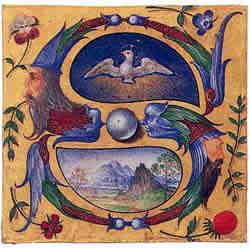 cience fiction has never been a favourite of mine. I'm not closed-minded to it, I just can't feel engaged enough to the story line to muddle through and I just might be one of the very few that was never drawn to any of the Star Wars blockbusters either. But every once in a while while fanning through the occasional book, I'll find a pithy statement that I find particularly significant and memorable, regardless of the subject matter. Such is the case with Joan Vinge's The Snow Queen and the quote, "Indifference is the strongest force in the universe. It makes everything it touches meaningless. Love and hate don't stand a chance against it".
cience fiction has never been a favourite of mine. I'm not closed-minded to it, I just can't feel engaged enough to the story line to muddle through and I just might be one of the very few that was never drawn to any of the Star Wars blockbusters either. But every once in a while while fanning through the occasional book, I'll find a pithy statement that I find particularly significant and memorable, regardless of the subject matter. Such is the case with Joan Vinge's The Snow Queen and the quote, "Indifference is the strongest force in the universe. It makes everything it touches meaningless. Love and hate don't stand a chance against it".in·dif·fer·ent(adj)
Having no particular interest or concern; apathetic
Having no marked feeling for or against
Not mattering one way or the other
Characterized by a lack of partiality; unbiased
Not active or involved; neutral
I recall a poignant and powerful speech by Nobel Laureate, Elie Wiesel, before Clinton about 7 years ago. He was relating the impact of indifference that the holocaust victims and prisoners of war experienced, and some of the passages moved me then and bear repeating.
"... indifference can be tempting -- more than that, seductive. It is so much easier to look away from victims. It is so much easier to avoid such rude interruptions to our work, our dreams, our hopes. It is, after all, awkward, troublesome, to be involved in another person's pain and despair. Yet, for the person who is indifferent, his or her neighbor are of no consequence. And, therefore, their lives are meaningless. Their hidden or even visible anguish is of no interest. Indifference reduces the other to an abstraction.... behind the black gates of Auschwitz, the most tragic of all prisoners were the "Muselmanner," as they were called. Wrapped in their torn blankets, they would sit or lie on the ground, staring vacantly into space, unaware of who or where they were -- strangers to their surroundings. They no longer felt pain, hunger, thirst. They feared nothing. They felt nothing. They were dead and did not know it "
Wiesel went on to explain that indifference is even more dangerous an anger and hatred, as at least anger is a creative force ~ it elicits a response and it is from that disapproval that energies are focused and something productive or good can emerge. On the other hand, indifference elicits no response. "Indifference is not a beginning; it is an end. And, therefore, indifference is always the friend of the enemy, for it benefits the aggressor -- never his victim, whose pain is magnified when he or she feels forgotten .."
How true this is. For the abandonment, the lack of response, the impact of indifference on a victim is further punishment. Roman historian, Tacitus, is claimed to have said, "Proprium humani ingenii est odisse, quem laeseris [Agricola]Translated it means that it is considered human nature to dislike a person that you have harmed or injured.
With this premise in mind, is it a result of a sense of shame for having violated an someone? Along these lines, it's theorised that one logical consequence of hurting another is to begin to despise the victim. And in order to defend against the intense disappointment in oneself for having hurt another innocent person, anger is directed outward and toward the victim once more. The passions and emotions that caused a person to commit an injury are turned to distaste for the victim in an effort to be absolved of responsibility for one's actions. Thus, the more intense the original passions and desires, the greater the dislike of the victim that results. And of course, the natural human reaction is to feel embarrassment.
I often wondered, could there be anything worse than knowing that someone, to whom you'd been a loyal caring friend, disliked you because you had been hurt by them ~ you'd been their victim? As Wiesel and Vinge have so eloquently stated, to be worse would be "to be forgotten; to be meaningless".
In December 2004, I had sent "Doug" an instant message that simply said "Silence can be deafening; and so piercing indifference can be". One full year later, right before Christmas 2005, despite having sent him a number of heartfelt emails, still no response.
I'd exercised the utmost respect for his situation despite his apparent lack of concern for mine. I offered forgiveness for the harm the ruse had caused me but wished I could find hope again for the future. It was at this time that I wrote "Les Ouiseux d'une meme couleur" hoping he'd see my need for some answers, and hoping above all that the pain of having been deceived would not be magnified, as Weisel claims, by now being "forgotten and meaningless".

No comments:
Post a Comment